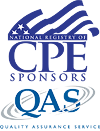Welcome to Financial Reporting Ethics: Tools & Mastery. Financial reporting is the foundation of trust in capital markets, and ethical practice goes far beyond mere compliance. This course equips you with the practical tools and frameworks needed to navigate complex ethical challenges in the real world. You will gain a deep understanding of why integrity in financial reporting is essential for market confidence and long-term success, exploring real-world cases of ethical failure like Under Armour, Carillion, and Wirecard and their devastating consequences. We delve into the core ethical principles—integrity, objectivity, professional competence, confidentiality, and professional behavior—and learn how they serve as your compass.
Moving beyond theory, we provide actionable methods for ethical decision making, especially under intense pressure scenarios common in finance. The course offers structured approaches to recognizing and responding to pressures, supported by practical tools like rapid decision-making trees and ethical reporting checklists.
We tackle two areas most prone to ethical risks: revenue recognition and accounting estimates. You'll explore how to apply standards like IFRS 15 and ASC 606 ethically, identify red flags in revenue timing and complex estimates, and learn best practices to ensure faithful representation even in gray areas. Furthermore, we examine the critical role of governance, internal controls, and leadership accountability, highlighting how regulations like Sarbanes-Oxley reinforce ethical conduct from the top. Finally, we address the complexities of maintaining consistent ethical practice in a global environment, navigating different accounting frameworks and cultural nuances while upholding universal principles.
By the end of this course, you will be empowered to:
- Proactively identify ethical issues in financial reporting.
- Apply structured frameworks to make confident ethical decisions under pressure.
- Recognize and address ethical risks in revenue recognition and accounting estimates.
- Understand the vital role of governance and controls in fostering an ethical culture.
- Maintain consistent ethical standards across different accounting frameworks and international borders.
Mastering financial reporting ethics isn't just about avoiding pitfalls; it's about building a foundation of trust that benefits your organization, your career, and the broader financial ecosystem. Join us on this essential journey toward principled financial reporting.
This course is also available in 2 parts Video-Based format:
-
Financial Reporting Ethics: Tools and Mastery - Part 1
- Financial Reporting Ethics: Tools and Mastery - Part 2
Course Key Concepts: Ethics, Revenue Recognition, Financial Statements, Reporting, US GAAP, IFRS, ASC 606, IFRS 15, AICPA, IESBA, Bonus, Series, Mastery, Estimates, Judgements, Accounting, Global, Governance, Internal Controls, Wirecard, Carillion, Practical.
Prerequisites
No advanced preparation or prerequisites are required for this course.
Learning Objective
- Identify ethical issues in financial reporting (before they escalate into significant risks).
- Explore and confidently navigate ethical dilemmas under intense pressure (using structured decision-making checklist).
- Explore and effectively apply key ethical principles (integrity, objectivity, competence, confidentiality, professional behavior).
- Discover and detect and respond to ethical red flags in revenue recognition (applying ASC 606 / IFRS 15 principles).
- Identify and implement practical, actionable tools (decision trees, checklists, and jurisdictional comparisons).
- Identify and apply ethical reasoning to complex estimates, provisions, and fair value.
- Recognize common red flags and bias in accounting judgments.
- Identify and implement best practices for ethical estimation processes and controls.
- Explore and understand the impact of governance and leadership tone.
- Discover and uphold consistent ethical standards across international frameworks.
Last updated/reviewed: July 09, 2025


Ask the instructor a question about this lesson